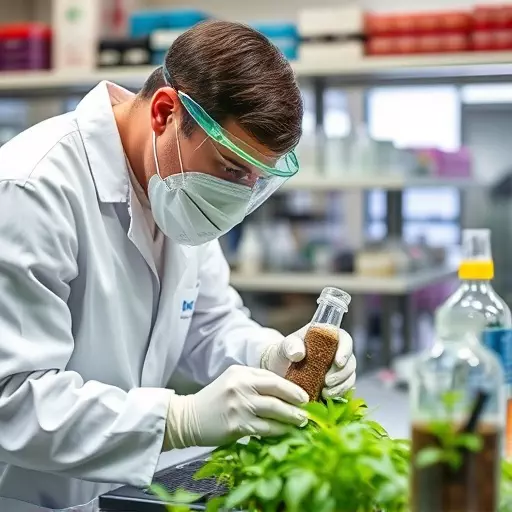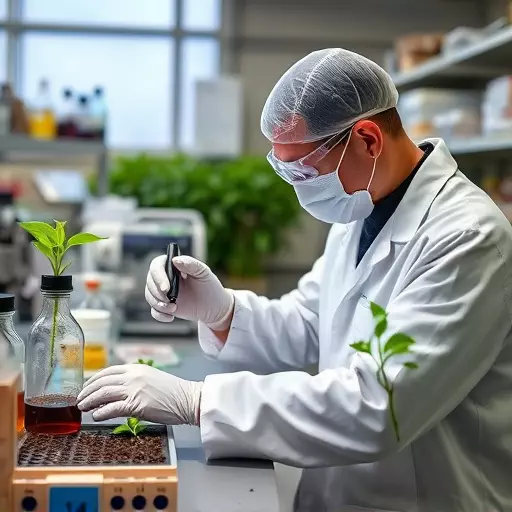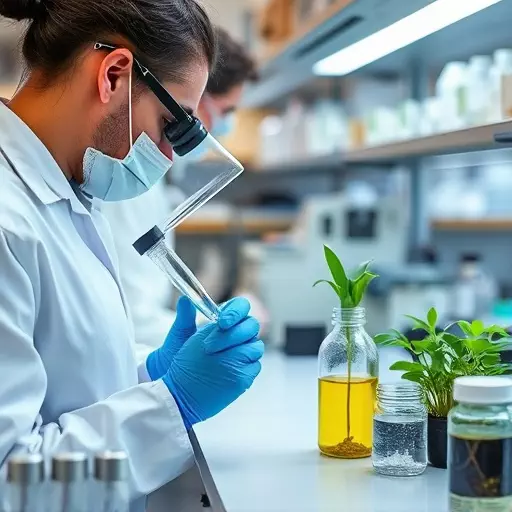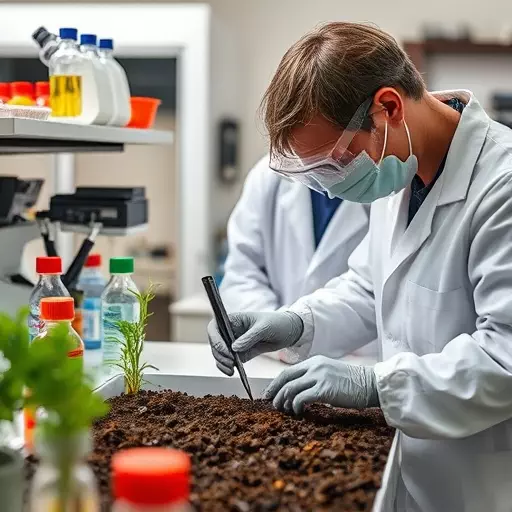Advanced ceramic labs in Warren-Troy-Farmington Hills serve as hubs for innovation and quality control. Through rigorous testing under simulated real-world conditions, these facilities ensure ceramic materials meet high standards. Lab work plays a crucial role in diverse fields like forensics and agriculture. In forensics, isotope analysis aids precise material identification for crime solving. Agricultural labs test soil health to optimize crop yields. This interdisciplinary approach underscores the versatility of lab work in advancing ceramic technology, combining forensic insights with industrial durability testing. Durability assessment through lab work is vital across industries, from crime-solving tools to sustainable farming practices.
In the realm of advanced materials, laboratories play a pivotal role in evaluating the durability and performance of ceramics. This article explores the multifaceted contributions of labs in diverse sectors. We delve into the intricate process of lab testing for ceramic durability, highlighting its importance across various applications. Furthermore, we uncover the forensic applications of isotope analysis in crime solving, supported by compelling case studies. Additionally, we emphasize the role of soil health testing in agricultural labs for crop optimization and discuss integrating these specialized services in local communities, such as Warren-Troy-Farmington Hills, to foster innovation and practical solutions.
- The Role of Labs in Evaluating Ceramic Durability
- – Overview of lab testing for advanced ceramics
- – Importance and applications of durability assessment
- Forensic Isotope Analysis in Crime Solving
The Role of Labs in Evaluating Ceramic Durability

In the realm of advanced ceramics, labs play a pivotal role in evaluating durability and performance. These specialized facilities, often found in areas like Warren-Troy-Farmington Hills, are equipped to conduct rigorous tests that mimic real-world conditions. By employing cutting-edge technologies, lab work ensures that ceramic materials meet stringent quality standards before they enter the market. For instance, forensic applications of isotope analysis in crime solving have paved the way for precise material identification and authentication, enhancing the reliability of laboratory tests.
Moreover, labs engaged in agricultural research conduct extensive testing on soil health to optimize crop yields. Similar principles apply to advanced ceramics, where environmental factors like temperature, humidity, and chemical exposure are simulated to assess long-term durability. This interdisciplinary approach, drawing from fields such as agriculture and forensics, underscores the versatility and importance of lab work in advancing ceramic technology for diverse applications, be it industrial or scientific.
– Overview of lab testing for advanced ceramics

In the realm of advanced ceramics, lab testing plays a pivotal role in evaluating durability and ensuring optimal performance under various conditions. These tests, conducted in facilities like those found in Warren-Troy-Farmington Hills, are instrumental in understanding material properties and predicting long-term behavior. Forensic applications of isotope analysis, for instance, can provide insights into the composition and origins of ceramic materials, enhancing their traceability and authenticity.
Similarly, agricultural labs engage in testing soil health to optimize crop growth, a process that also mirrors the importance of material assessment in ceramics. By simulating real-world conditions, these labs help develop advanced ceramics that are not just robust but also sustainable. This parallel between agricultural and ceramic lab work underscores the broader implications of meticulous testing in enhancing the effectiveness and longevity of materials across diverse fields, from crime solving to crop optimization.
– Importance and applications of durability assessment

Durability assessment plays a pivotal role in various industries, from manufacturing and materials science to forensic sciences and agriculture. In the context of lab work in Warren-Troy-Farmington Hills, evaluating the resilience and longevity of advanced ceramics is essential for designing robust solutions. This process involves intricate tests that mimic real-world conditions, ensuring these materials withstand environmental factors, mechanical stresses, and chemical exposures. The ability to predict and analyze ceramic durability has far-reaching implications, particularly in forensic applications where isotope analysis aids in crime solving by identifying material origins and trauma histories.
Moreover, in agricultural labs, testing soil health is a critical component of crop optimization. By examining soil samples under controlled conditions, researchers can identify nutrient deficiencies or excesses, pH imbalances, and the presence of contaminants. This knowledge drives evidence-based decisions to enhance soil fertility, optimize plant growth, and promote sustainable farming practices. Integrating lab work with field observations empowers farmers to make informed choices, ensuring healthier crops and more resilient ecosystems.
Forensic Isotope Analysis in Crime Solving

Forensic Isotope Analysis: Unlocking Clues and Solving Crimes
In the realm of lab work, forensic isotope analysis stands as a powerful tool in crime solving, particularly in regions like Warren-Troy-Farmington Hills where advanced scientific methods are crucial for precise investigations. This technique leverages the unique chemical signature of isotopes—different forms of the same element with distinct atomic masses—to uncover vital information hidden within physical evidence. By examining materials such as soil, bones, or even ceramic fragments, forensic scientists can gain insights into their origin, age, and potential links to specific locations or individuals.
The applications of isotope analysis in crime solving are vast. In agricultural settings, testing soil health in labs for crop optimization is a practical use case. Isotope ratios in soil samples can reveal agricultural practices, nutrient management, and even potential contamination sources. Moreover, forensic experts can employ these techniques to analyze ceramic fragments found at crime scenes, providing insights into their manufacturing process, age, and geographical origin, thereby aiding in reconstructing the timeline of events and identifying suspects or victims.
